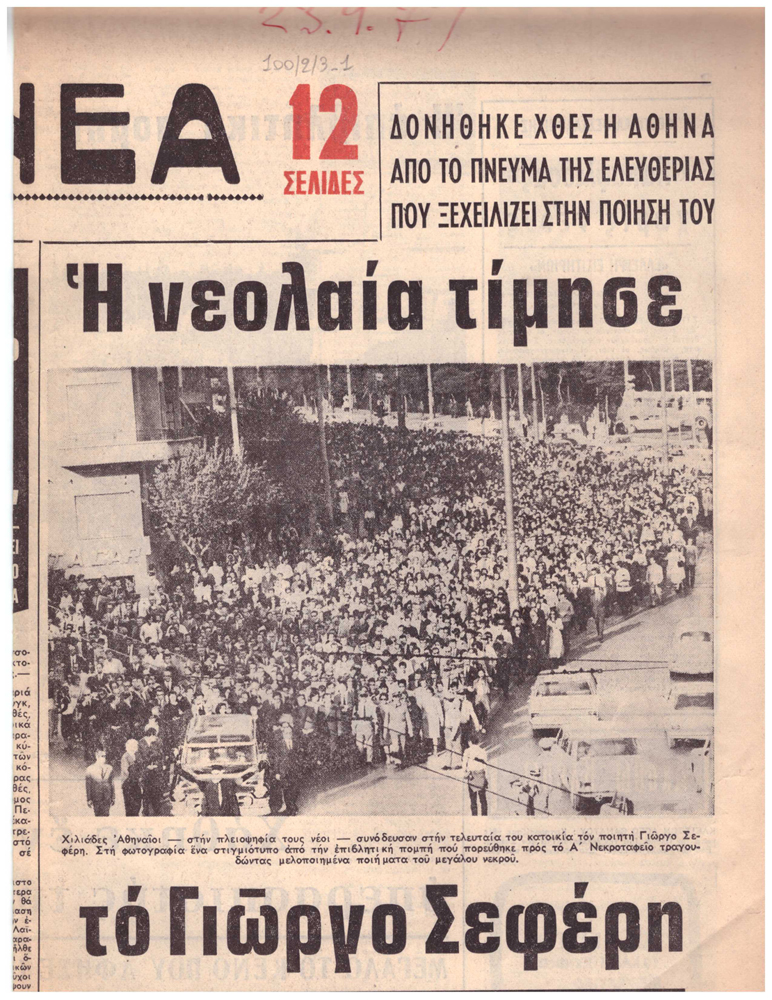
Fifty Years After George Seferis’s Death
Fifty years ago to the day, in 1971, poet George Seferis died, Nobel Laureate in Literature for 1963. Two days later, more than 10,000 Greeks, singing the national anthem and Mikis Theodorakis’s musical version of Seferis's “Denial” (Άρνηση, 1931), followed the car that carried his body from Plaka to the First Cemetery . The march was unprecedented, given the fact that the Greek junta had prohibited any kind of public gathering. But the police did not dare to make arrests.
In the spring of 1972, Francis Walton, then Director of the Gennadius Library, noted in his Annual Report: “One of the great poets of our day, George Seferis, Greek diplomat and Nobel laureate, died last September. A loyal friend of the Library, he had in recent years been giving us inscribed copies of all his publications. We had never discussed his manuscripts, but in his will, by which his entire estate was left to his wife, he stipulated that if she should predecease him all his manuscripts and papers should come to the Gennadius Library. Mrs. Seferis has informed us that she will honor his expressed wish and that as the papers are sorted and classified they will be given to the Library.”
Less than a year later, on February 27, 1973, James McCredie, Director of the American School of Classical Studies, and Maro Seferis signed the deed of gift. The collection, now fully catalogued and largely digitized (although not available online for reasons of copyright), thanks to grants from the Leventis Foundation and a recent ESPA Call 31 grant, has been the inspiration and basis for numerous books, dissertations, and articles.
Here the first lines of Αρνηση (Denial):
Στο περιγιάλι το κρυφό
κι άσπρο σαν περιστέρι
διψάσαμε το μεσημέρι·
μα το νερό γλυφό.
On the secret seashore
white like a pigeon
we thirsted at noon;
but the water was brackish.
Photo: ASCSA Archives, George Seferis Papers, Box 100.